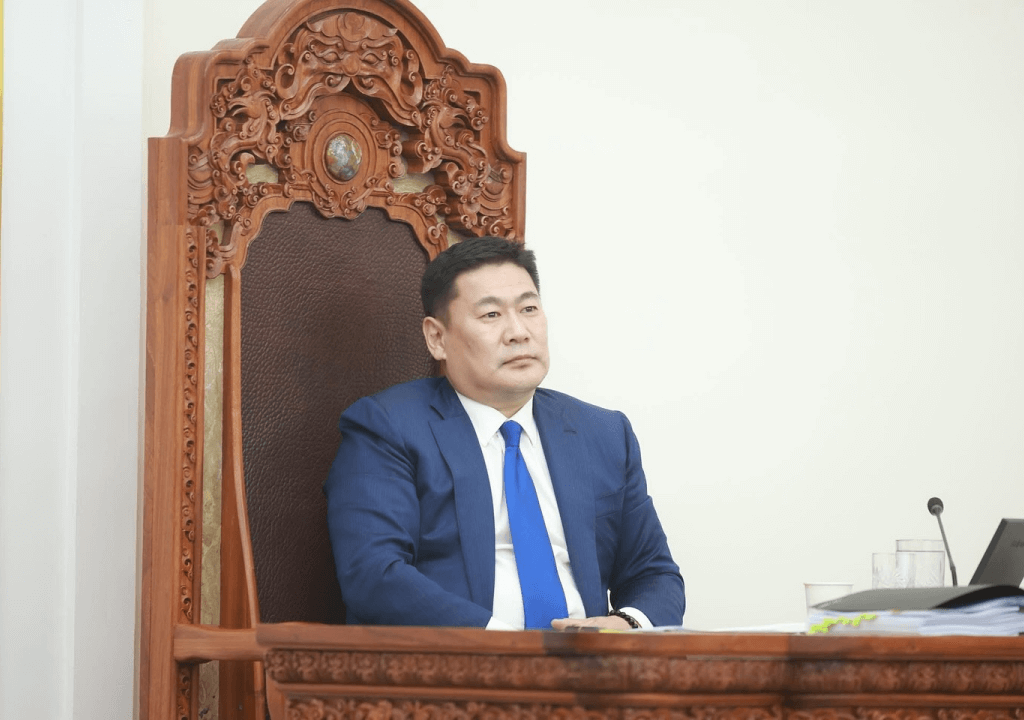Mongolia’s Prime Minister, Oyun-Erdene Luvsannamsrai, has resigned after failing to secure enough support in a parliamentary vote of confidence. He received just 44 votes, well short of the 64 required in the newly expanded parliament. The vote, held early Tuesday (June 3rd), came after weeks of mounting unrest over reports of extravagant spending by his son. Public outrage intensified, leading to growing calls for the prime minister’s resignation—pressure that culminated in his failure to secure even full support from his own party members in the confidence vote.
Troubled years of Oyun-Erdene
Mongolia, a democratic nation wedged between two authoritarian powers—Russia and China—has frequently witnessed political unrest that has led to multiple resignations. Oyun-Erdene Luvsannamsrai became the latest in this line, having been appointed Prime Minister in 2021 following the resignation of his predecessor, Ukhnaagiin Khürelsükh, amid similar unrest.
Though Oyun-Erdene was re-elected in the 2024 parliamentary elections and his party secured a majority, he chose to form a “Grand Coalition” with opposition parties—a move he claimed would ensure political stability. However, concerns over inequality and corruption linked to Mongolia’s mineral wealth continued to fuel public anger. Discontent intensified when allegations emerged that the prime minister was aware of—or may have financed—his son’s extravagant lifestyle. While Oyun-Erdene submitted himself to an investigation by Mongolia’s anti-corruption watchdog, he offered little public explanation. A petition signed by 59,000 citizens called for his resignation, citing the unclear sources of his son’s wealth, rising inflation, and growing restrictions on press freedom.
Once regarded as a reformer who challenged entrenched oligarchic interests controlling the country’s rare earth resources, Oyun-Erdene ultimately succumbed to mounting scandals and public pressure, forcing him to step down.
Will it trouble Mongolia?
Before the confidence vote, Oyun-Erdene cautioned that the outcome could trigger political instability and threaten Mongolia’s fragile democracy. He argued that if governance became unstable, the economic situation worsened, and political parties failed to reach consensus, the public might lose faith in parliamentary rule—potentially putting the entire democratic system at risk. While it may sound like a political move, there is some truth to his warning.
Landlocked between Russia and China, Mongolia has long faced difficulties in solidifying its democratic foundations since transitioning from a communist party-state. Once a Soviet satellite, Mongolia began its democratic journey after the collapse of the USSR, but the road has been far from smooth. The influence of both Moscow and Beijing still lingers, and political protests have become a recurring feature—often disrupting the already fragile economy. Building a stable democratic system is particularly challenging in a country where inflation, high interest rates, and unemployment fuel widespread frustration.
Many protesters argue that Mongolia’s vast mineral wealth has benefited only a small business elite, while much of the population remains in poverty. The current government has attempted to address these grievances. One of its key proposals is to create a sovereign wealth fund, backed by strategic mineral deposits, to shift the economy away from dependence on commodities and debt. However, this plan has brought Oyun-Erdene into direct conflict with wealthy private interests who are unwilling to relinquish control of valuable resources. His resignation may jeopardize these reforms.
China remains Mongolia’s largest export partner, but the coalition government has been working to reduce this dependence by launching 14 major infrastructure projects aimed at economic diversification. Such moves are unlikely to please either China or Russia, who may view them as attempts to reduce their influence. Any pushback from these powers could further destabilize Mongolia and complicate its efforts to assert economic and political independence.
What comes next?
Oyun-Erdene will remain in a caretaker role until a successor is appointed within 30 days. The ruling Mongolian People’s Party is expected to form a new government during that period. However, the vote effectively ends its coalition with two other parties. While the party may attempt to govern alone, its slim majority in parliament suggests that any new administration will be fragile and susceptible to internal dissent.
At the same time, sources within the government claim that the controversy surrounding the lavish lifestyle of Oyun-Erdene’s son is being weaponized by supporters of President Ukhnaagiin Khürelsükh. Their goal, they allege, is to weaken parliamentary authority and create a pathway for Khürelsükh’s return to power. Under current law, the president may serve only one six-year term, but Khürelsükh—a former prime minister and fellow member of the Mongolian People’s Party—is reportedly pushing for constitutional amendments that would allow him to seek a second term and strengthen presidential powers. With the next presidential election set for 2027, this push has gained momentum, deepening divisions within the ruling party between those advocating for a stronger presidency and those defending parliamentary democracy.
Already burdened by economic strain and an unstable democratic foundation, Mongolia now faces the prospect of even greater political uncertainty.








